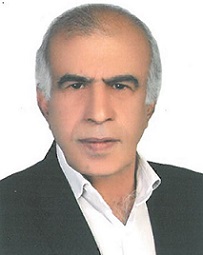The idea behind the collider is simple: get protons—positively charged particles present in every atom—going fast, crash them into each other and observe the fragments. The LHC will use superconducting magnets to guide the protons round and round the subterranean ring until they're going almost as fast as light. The resulting collisions will release unprecedented amounts of energy (equivalent to 100,000 times the temperature at the center of the sun). With luck, they'll also produce, among a shower of lesser particles, the long-sought Higgs boson.
The collider may also throw up clues to puzzles that arise at the strange intersection of particle physics and astronomy. To understand the cosmos, scientists must understand how it developed from those first primordial particles. "In effect, what we have is far and away the most capable microscope ever built, and the most powerful telescope ever built," says theoretical physicist John Ellis. A central mystery is the supposed existence of invisible "dark matter," and its counterpart "dark energy," a strange force that seems to accelerate the expansion of the universe. Although together the dark pair make up for 96 percent of the universe, scientists know next to nothing about them—only their gravitational effects. Those grand collisions may produce undiscovered particles that account for both. The collider might also reveal yet another set of particles, the "superpartners," needed to bolster the case for String Theory, a "theory of everything" that proposes the existence of six extra dimensions and a universe constructed of tiny vibrating strings.
All this knowledge comes with a whopping price tag: the collider will cost about €3 billion. Its annual energy consumption will match the entire city of Geneva's. The 1 billion collisions taking place every second, captured and filtered by underground detectors, will generate enough data to fill 100,000 CDs a year. But ultimate knowledge is worth it, says CERN boss Robert Aymar. "Mankind has to ask itself these questions, and the tools are not available off the shelf."
It's entirely possible that after all this money and effort the collider's detectors will find no trace of the Higgs boson. That would still make the project worthwhile, researchers say. It would indicate beyond the shadow of a doubt that the Standard Model, the basis of modern physics, requires a radical rethinking. "Our theorist friends tell us to look this way or the other, but maybe Nature is telling us to look behind us," says Tejinder Virdee, a physicist from Imperial College in London.
The Geneva experiments will keep scientists occupied for 20 years or more. "This is truly a once-in-a-generation experiment," says Virdee, "but it will take a generation to do." Setting up the world's greatest experiment took more than a decade: fixing the nature of the cosmos will take a little longer.
Source;
